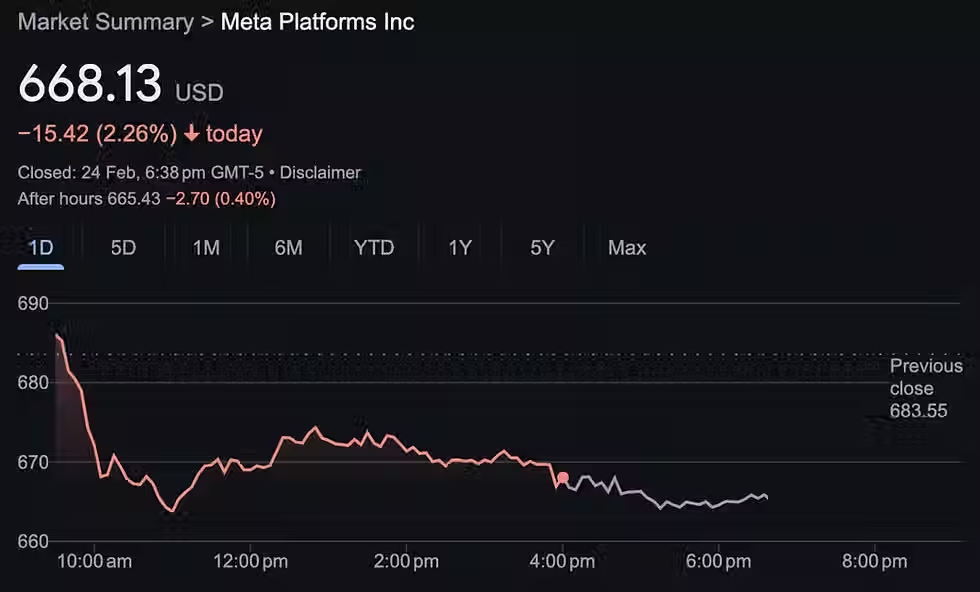How To Prepare for a Recession in 2023
- Buffett Online School

- Oct 6, 2023
- 5 min read

Many of us continue to feel the effects of inflation for months. But there's another economic problem coming our way soon – a possible recession like what Stephen Stanley, Chief US economist at Santander, said in his interview at CNBC: if there's a recession, it will probably happen in 2024.
This means that knowing how to prepare for a recession is crucial.
What is a recession?
Recessions are inevitable in any economic cycle and can significantly negatively impact individuals, businesses, and the economy.
During a recession, we may encounter job losses, reduced income, lower demand for services and goods, and a decline in asset values. That's why knowing how to prepare for a recession is essential.
At Buffett Online School, we also believe in investing in great companies you understand and utilizing Free Investing Resources to help you start your financial freedom and investment journey is one of the best ways to learn.
In this article, we'll discuss ways to prepare for a recession. Chloe Lin also shares this on her TikTok video so you can get more advice about recession and investing, business, and growing your money.
1. Build your Emergency Fund
Imagine a recession is like a big economic storm, and an emergency fund is like a unique boat that keeps you safe during the storm. When you have money saved up for unexpected times, it helps you feel calm and not worried, even when everyone else is panicking.
This is always important, not only when discussing a recession.
Usually, experts suggest creating a fund equal to around half a year to nine months' worth of your expenses. It is like a safety net of money that you can only save up when you have a job.
2. Pay Down Debts
Think of your emergency fund as a rescue boat, while debt is like a heavy anchor dragging you down in the water. You should get rid of that debt!
The last thing you want to stress about during a recession or when things are unsure is how you'll manage to pay for your car or anything else you owe money for.
If you focus on paying off your debts step by step, you'll have fewer bills to think about and extra money available—both of which are beneficial during a recession! This is one of the smart moves to plan for a recession.
Moreover, being debt-free brings a strong feeling of freedom and calm. And when you don't have to use most of your salary to cover the debt, things like more expensive groceries or a drop in the stock market won't affect you as badly.
3. Start Investing
When the economy isn't doing well, the value of stocks usually goes down. While this might seem bad for your investments, it's better not to sell them during this time because that way, you don't lock in the losses caused by the recession.
Interestingly, when stock prices are lower, it's an excellent chance to invest in them for a lower cost. However, investing during a recession is wise only if you're financially good and have the right mindset.
Don't risk your immediate financial stability for long-term benefits. If you're facing financial difficulties, skipping investment opportunities is okay. Instead, concentrate on paying your bills and taking care of your well-being.
You can increase your investments later when you have a more secure job and a steady income and feel better overall.
An essential item on what to prepare for a recession is to have money to cover your living expenses for around three to six months, preferably closer to six. If you have this money saved up and extra to spare, you can use it for investing.
4. Increase Source of Income
Recessions often result in job uncertainty and potential layoffs. That's why having multiple income sources makes you less dependent on a single job, which can increase your financial stability.
Additional income is a great way to prepare for a recession, as it can also contribute to building your savings, providing a safety net in unexpected events. It can also create chances for long-term investments. However, you can only invest more if you have funds.
Exploring options that align with your skills, interests, and circumstances, whether taking on part-time work, freelancing, starting a side business, or investing in education to enhance your earning potential, is essential.
5. Limit Expenses
Figuring out how much you can save begins by making a plan for your money each month. Experts often suggest splitting your income: use 50% for things you need, like housing and food, 30% for something you want, and save 20%. Look at your money situation to see if you're close to this idea.
The main point is to determine if you're spending within your limits and not too much. If you are, figure out how to free up some money to balance things. Reviewing your priorities is one of the best ways to prepare for a recession.
Once you know where your money is going, look for places to spend less. Usually, those are things you don't need.
Sometimes, it's easier to start with minor changes. You can eat out less, reduce how many streaming services you use, or avoid significant expenses like vacations or memberships you don't need.
After that, cutting back on more significant expenses could be a good idea. For instance, it might not be the best time to buy a car and get a new loan if you're worried about a recession and want to save money—unless you need the car.
6. Don’t Panic
Panicking about what might occur during a recession is common, especially when it involves the money you worked hard for. However, it's crucial not to let all the fear around you affect you, as anxiety can lead to poor choices.
Rather than fixating on things you can't control, concentrate on the things you can. You have the power to manage your money wisely. If you can make good decisions when times are stable, you can also handle your finances effectively during a recession.
Remember, even if a recession does occur, you can navigate through it.
In conclusion, preparing for a possible recession is crucial as it can significantly impact our lives, money, and the economy. During a recession, job uncertainty, lower income, and the value of things going down are common.
Remember all these points on how to prepare for a recession. Stay focused, make good choices, and remember you can get through it.
Join Our Free 2-Day BOS Value Investing MBA
At the Buffett Online School, we believe in learning the right investing mindset and system, so we can start cultivating emotional detachment and grow our wealth safely and substantially in the long run.
Our next 2-day BOS MBA Value Investing Online Bootcamp is happening soon! We will teach you how to use Warren Buffett's proven investing method to maximize your portfolio.
Remember, you have the choice to cultivate the right investing mindset and unlock your potential to build wealth through intelligent investing. Together, we can create a network of educated investors who make informed decisions and contribute to their financial well-being!
In the meantime, feel free to check out some of our blog posts to continue learning. You can also join our BOS Telegram channel for more investing insights!






In uncertain economic times like these, it's crucial to have a solid financial plan in place. Start by creating a budget, cutting unnecessary expenses, and building an emergency fund. Diversifying investments and exploring alternative income streams can also provide a buffer against economic downturns. And while we're talking about preparing for the unexpected, it's wise to ensure your health is covered too - perhaps consider investing in good insurance or even prioritizing self-care with something like an ultrasonic rhinoplasty from a reputable surgeon like Dr. Shahram. It's all about being proactive and staying prepared for whatever comes our way.